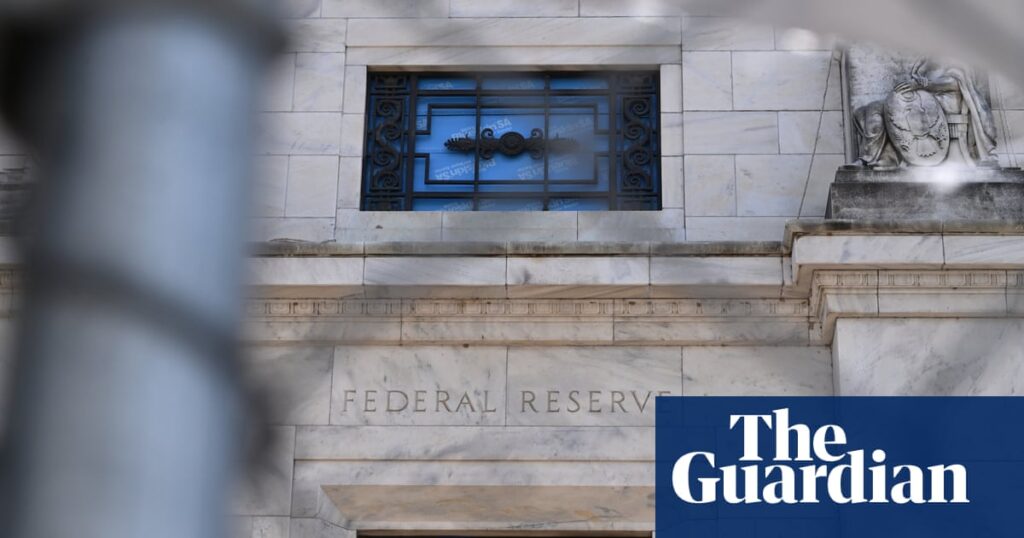When Donald Trump stepped up his campaign to influence the US Federal Reserve, he traveled less than a mile from the White House, to tour the central bank’s headquarters. But as the administration considers how to actually get what it wants, one of Trump’s acolytes looked some 500 miles south.
A condominium above the Four Seasons hotel in Atlanta, Georgia, is at the heart of an extraordinary battle over the future of the Fed, and the independence of its power of the world’s largest economy.
For a generation, presidents have respected the Fed’s autonomy. They might disagree with its decisions. But they allowed it to make long-term calls in the best interest of the economy, even if they caused short-term political discomfort.
Trump has ignored this precedent.
Since returning to office in January, the president has lambasted the Fed publicly and relentlessly – calling its chairman, Jerome Powell, a “moron”, a “numbskull” and a “disaster” – and accused the central bank of damaging the US economy by failing to cut interest rates.
As the Fed declined to lower rates at five consecutive meetings, the president escalated his attacks, even suggesting (without evidence) that multi-billion dollar renovations of its Washington headquarters were tantamount to fraud.
But policymakers held the line. With most rate-setting officials wanting to wait and see the impact of Trump’s policies – from trade wars to deportations – on the economy, they sat on their hands.
While the Fed might be on the cusp of resuming rate cuts, Powell has made clear rates are unlikely to fall as drastically as the president wants.
So how does Trump actually get what he wants?
Back to that condo in Atlanta. It was allegedly bought by Lisa Cook, a respected economist appointed by Joe Biden to serve on the Fed’s board of governors, in July 2021. Trump’s officials claim she took out a mortgage which listed the property as her primary residence – two weeks after taking out another mortgage, which listed a property in Ann Arbor, Michigan, as her principal residence.
The allegations – similar to those that the administration has leveled against other opponents – are unconfirmed. But that didn’t stop the president from immediately demanding Cook’s resignation.
When Cook refused to be “bullied”, he tried to fire her. Cook has insisted Trump has no authority to do so, and her attorney has pledged to sue the administration over its bid to remove her from her post.
The Fed’s rate-setting Federal Open Market Committee (FOMC) is in Trump’s sights. There are 12 seats around the table, filled by five representatives of local reserve banks, and seven governors.
Fed governors, once appointed, are hard to replace. A full term lasts 14 years, enabling them – in theory – to take a longer view on the economy than, say, presidential administrations working on four-year cycles.
Cook’s term is not due to expire until 2038. It now appears likely that her future at the Fed will be settled in court. But Trump’s bid to exert control over the central bank, and its rate-setting committee, does not end there.
He has already nominated one ally to sit on the Fed’s board of governors, following the exit of Adriana Kugler, another Biden appointee, earlier this month. Two other governors have already publicly sided with the president on rate cuts, and reportedly made the administration’s shortlist of potential successors to Powell.
Powell’s term as Fed chair is due to end in May. His term as a governor is not due to expire until January 2028, but departing chairs have typically left the board at the same time.
The Fed has so far defied Trump’s demands. But each departure enables him to build his influence over its policy committee. Like the supreme court, these nominations have implications for years to come.
The administration is arguing a mortgage on a condo in Atlanta should allow it handpick another official to join the Fed’s board. Who knows what the next purported reason will be, should it have another go.
Of course, receiving Trump’s backing today does not guarantee his support tomorrow.
Eight years ago, when he tapped Powell to lead the Fed, the president delivered a strikingly different verdict to the ones he now routinely publishes on social media. “He’s strong, he’s committed and he’s smart,” said Trump.

